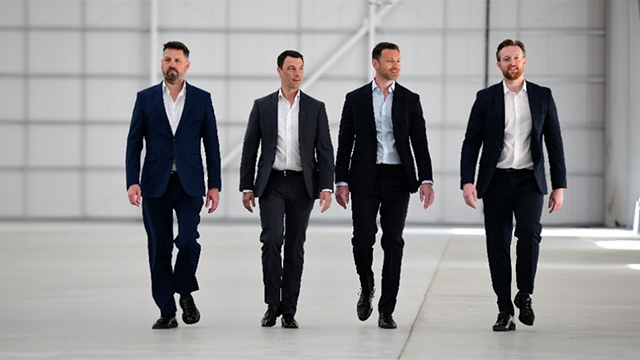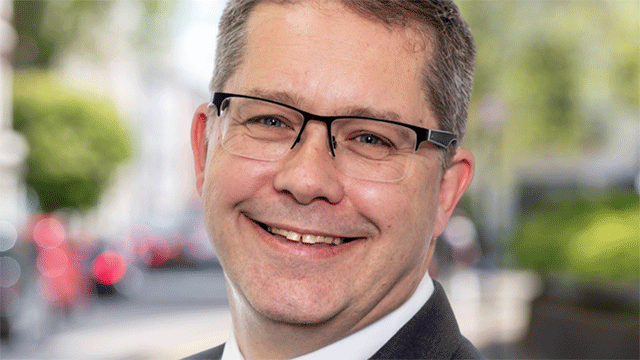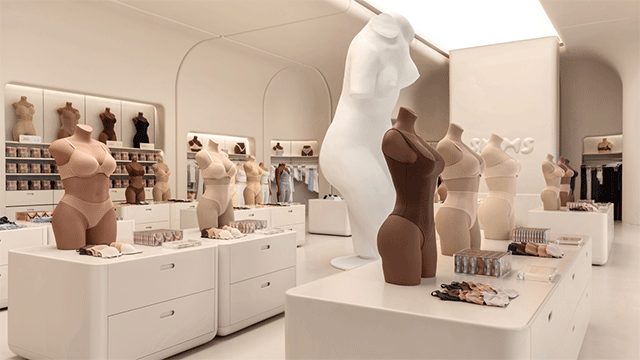After a five-year economic boom, the fast-growing Turkish retail market has come to a grinding halt. International investment, the lifeblood of the country’s real estate sector, has dwindled in line with the global downturn, while shopping centre developments have been postponed.
Annualised gross domestic product (GDP) growth slowed dramatically to 1.9% in the second quarter of 2008, from 4.5% at the end of 2007 and from 7.5% a year between 2002 and 2006, according to Turkstat, the Turkish government’s statistical institute. Consumer prices rose by 11.9% at the end of October 2008, as a result of exchange rate pressure and higher energy prices. Although Turkish banks are more liquid than other European institutions, their loan margins are higher, between 350 and 500 basis points over euribor depending on the quality of the project.
Driven by the expectation of rental growth, the Turkish retail market recorded yield compression over the past few years, with net initial yields of between 7% and 8% in the metropolitan cities. Many foreign investors were attracted by the country’s young and growing population, increasing purchasing power and comparatively low retail penetration. These fundamentals still apply, although leveraged buyers have since retreated from the market.
“Some of our international clients pulled back in the second half, especially German investors after October,” says Murat Ergin, managing director of Savills, Turkey. “This leaves the local players, who have not been a big part of the market anyway.”
The lack of overseas buyers and problems securing affordable financing mean that several of Turkey’s pipeline developments have been shelved. Multi Turkmall, the Turkish subsidiary of Dutch Multi Corporation, has deferred three retail projects, worth more than €420m, owing to funding difficulties. Multi, which has 21 projects in Turkey, including five schemes that are already operating and eight sites under construction, has decided to postpone its Forum TEM, Diyarbakir and Gaziantep projects. “We are slowing down our pipeline,” says Mehmet Ali Ersoy, director of business development at Multi Turkmall. “This will be a stabilising year. By 2010 the market will start to come back.”
Dogus-GE REIT is also slowing its pipeline, cancelling its development of a 48-storey prime office tower on the same site as its 58,000 m2 Dogus Power Centre in Maslak, Istanbul’s business district. Elsewhere, the 333,770 m2 Merter project, developed by Carrefour and AREA (formerly Apollo Real Estate), is progressing slowly owing to planning problems. The Zorlu Center, an ambitious mixed-use scheme intended to create an urban centre in the heart of Istanbul, is also experiencing delays.
Redevco’s 27,000 m2 Edirne project has stopped and will not restart until at least the end of 2009. The developer is still working with the Turkish authorities in an enquiry about the purchase of the site, on which it intends to build a shopping centre. The smaller of Redevco’s two proposed retail schemes in Manisa will also be postponed until market conditions improve. The 17,000 m2 mall had been scheduled to complete this year.
The stability of Turkey’s investment climate was tested in the first half of 2008 when a court case seeking the suspension of the ruling AK party, sparked by a row over the headscarf ban, demonstrated the fragile nature of the Turkish establishment. Cautious about the potential for political turmoil, investors paused for breath. The government was saved by the Constitutional Court in July, although just a single vote spared it from expulsion.
A second blow for the property sector was a court decision suspending legislation that allowed foreigners to buy real estate in Turkey. Although the government reinstated the rights of non-domestic investors, albeit with caveats, the uncertainty hit the investment market.
More red tape is now involved in the purchase of land or property, explains Barlas Balcioglu, a partner at local law firm Balcioglu & Selcuk. “The foreign investment law on real estate ownership has changed. There is no ban but there is more regulation, which makes the process slower.” For example, a foreign investor can no longer just buy a plot of agricultural land in the hope of building a shopping centre on it in the future.
These issues of legal ownership and political uncertainty, combined with the global credit crunch, resulted in a relatively quiet investment market in the first half of last year. During the period only one investment transaction was completed: Corio’s acquisition of the remaining 70% of the Ada shopping centre in Adapazari. In contrast, 2007 saw €940m of retail product traded, representing 5% of total investment volume in continental Europe that year, according to Jones Lang LaSalle.
Land and property values remain high, particularly in Istanbul, where plots of land can be bought at €10,260 per m2 in the city’s main central business district. This has caused some landowners to adopt unrealistic price expectations, and the mismatch between sellers’ targets and the prices foreign buyers will pay slowed the market in 2008.
“Sellers have priced themselves out of the market,” says Ergin. “But when investors return, sellers will have learned their lesson. Values will come down by 20-30% from where they were one year ago.”
Aside from this, the Turkish real estate market is beset by complex zoning issues and a lack of transparency. Istanbul is at risk of oversupply because there is no central zoning system. This means new malls can be developed close to existing ones, increasing competition and congestion. Although independent retail merchants have pressured the government to limit the number of developments, this is unlikely to happen soon.
“We won’t see changes to zoning during this generation,” says Balcioglu. “But the market itself has started to say ‘stop, they can’t all be profitable’.” Schemes outside the city centre, especially, have begun to suffer. Out of a handful of shopping centres in Beylikduzu, west of Istanbul, only one is achieving good turnover. This poor performance is probably the result of a large portion of the neighbourhood’s residents working in central Istanbul and doing most of their spending there.
The shopping centre market in Turkey has expanded over the past two years. Some 55 shopping centre schemes and 1.5m m2 of new retail space have come onto the market since January 2007, according to JLL, making Turkey the second most active shopping centre market in Europe, behind Russia. Istanbul leads the pack in terms of total gross lettable area, although the market concentration is higher in Ankara, at around 130 m² per 1,000 people, compared with 118 m² in Istanbul.
With so many shopping centres in one place, retailers have become more demanding. It is not possible for every brand to be present in every scheme, so retailers are starting to examine their options more closely. This awareness, coupled with lower profits, owing to deep price discounts, has fuelled a rebellion over management fees, which were agreed at the peak of the market.
“The dollar and the euro have strengthened but income is lower. This has pushed up management costs for retailers,” says Balcioglu. “Over the next nine months, the problem will only get worse.”
Retail rents could fall by up to 30% owing to excess space and a drop in sales, believes Turgay Tanes, chief executive of local property developer Is Gayrimenkul Yatirim Ortakligi. He has said that some outlets may close this year as the economy enters a recession. However, there is still demand for modern office space in Istanbul’s CBD.
Differentiation has become an important issue. Shopping centres are being seen as social venues where customers can also enjoy leisure entertainment. In addition to cinemas and restaurants, developers are being more adventurous with their leisure offer. For example, Multi has included a large aquarium in its Forum Istanbul scheme, while its Forum Ankara contains a theme park, ice rink and zoo.
Outside terrace space has become another important design consideration since smoking was banned in closed public areas from May 2008. Although the law will not be enforced for cafés, bars and restaurants until July 2009, around 25m of Turkey’s 70m population will be affected by the ban.
Turkey’s recovery from an internal crisis in 2001 could stand it in good stead to survive the current turmoil. The collapse of the exchange rate system prompted the government to seize control of 21 banks, later implementing structural reforms to strengthen the financial sector. This has protected it from the full impact of the global credit crunch so far. “The economic crisis will slow the market down this year,” says Patrick van Dooyeweert, Redevco’s managing director in Turkey. “But Turkey has bounced back quickly and this has created a strong banking system.”










